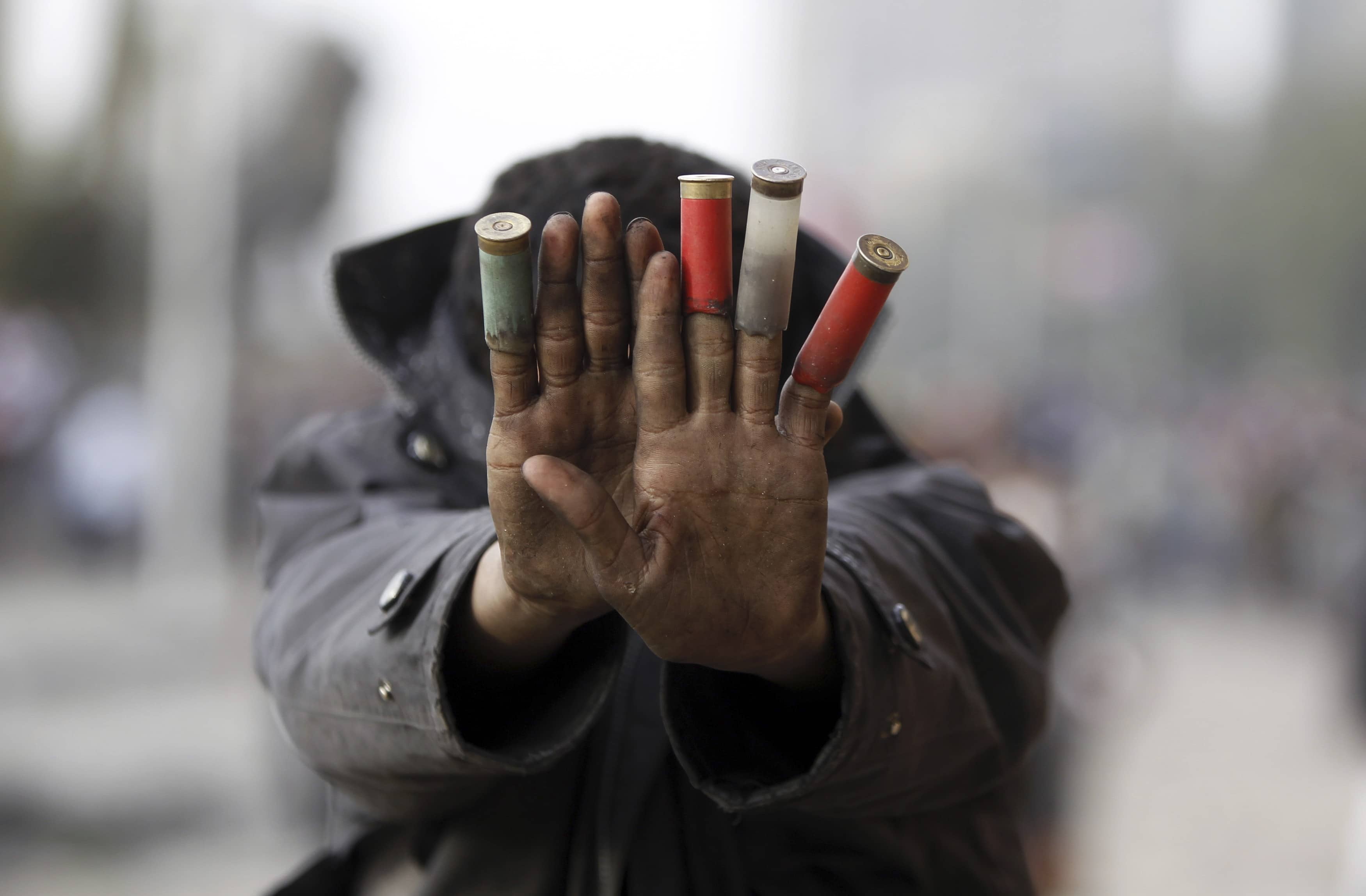President Mohammad Morsi declared a state of emergency in three canal cities after protests and clashes led to the death of at least 50 Egyptians.
(Freedom House/IFEX) – 28 January 2013 – One of the primary demands of the 2011 Egyptian revolution was to end the three decades of emergency rule under President Hosni Mubarak. But two years later, President Mohamed Morsi has declared a state of emergency in three canal cities: Port Said, Suez, and Ismailya.
The decision came three days after violence erupted on the second anniversary of the revolution, with Egyptians taking to the streets to protest the lack of progress on core revolutionary goals. In an echo of the events in 2011, the first death occurred in Suez on the evening of January 25 as a result of clashes between protesters and police. On the following day, fighting broke out in Port Said in response to the sentencing of 21 defendants to death for football riots last year that left 72 people dead and hundreds injured.
The football fans of Port Said were not just reacting to the harsh sentences against their comrades. They were also outraged by the possibility of impunity for police officers implicated in the 2012 deaths. A separate verdict for those officers was postponed until March 9. The 2011 revolution had been motivated in large part by public disgust with Mubarak’s viciously brutal police force, but the subsequent two years have featured a series of acquittals for officers and commanders involved in the deaths of protesters. The Port Said court decisions seemed to be yet another example of the police getting away with murder, adding to an impression among many Egyptians that the revolution had changed nothing.
Faced with the new violence, the police once again resorted to excessive force, using heavy doses of tear gas and live ammunition against the protesters. By second day, some 50 people had been killed, and hundreds more had been injured. Meanwhile, President Morsi’s only public remarks consisted of four tweets to express condolences and urge adherence to the peaceful principles of the revolution. This inept response mirrored the delayed and inadequate reaction of Mubarak in the early days of the 2011 uprising. On the third day, as protests and clashes spread to other cities, Morsi finally addressed the nation. He declared a state of emergency and curfews in the three canal cities, commended the police for their performance, urged them to respond firmly to chaos, and called for a national dialogue. Protesters in the three cities defied the curfew, filling the streets with chants for the fall of the regime.
Morsi duplicated Mubarak’s rhetoric as well as his actions. He played on the sentiments of poor Egyptians and their need for stability, denounced and defamed protesters, and warned of a strong response by police. Mubarak too had called for a national dialogue in each of his speeches, but the invitations were never taken seriously due to the absence of any binding terms or signs that he recognized fundamental flaws in Egypt’s governance.
The problem with relying on Mubarak-style tactics is that they have proven to be utterly ineffective at maintaining stability. There is no reason to believe that Morsi will have better luck with this approach than his predecessor. It may be true that he won office through competitive elections, and therefore has some claim to legitimacy. But the lack of a plausible electoral mandate was not the only blemish on the old regime. Just as important was the total opacity of its decision making, and the people’s strong sense that the state was not interested in their needs and rights.
Morsi’s main blunder is that he has not acted as the head of state since his election, but more as the head of an opposition party competing with its rivals. He has failed to govern through the state institutions, explain his decisions to the public, and base those decisions on open consultation with the cabinet and the other political forces in the country. Instead, the most critical statements on Egypt’s future have typically come first from the Muslim Brotherhood’s top officials. This exclusive style of governance can only damage public trust and encourage street skirmishes as the sole means of communicating with the state.
A first step toward regaining the people’s confidence amid the current crisis would be for Morsi to openly acknowledge that Egypt’s unreformed police are quite simply incapable of responding to protests and riots in a manner that respects human rights. In a sense he has done this, but not in a way that will win over his critics: Earlier today he approved a law that authorizes the army to arrest civilians and assist the police in restoring order, reviving a hated feature of the military rule that his election was supposed to end.
Egypt has made some progress toward democracy in the past two years, holding elections, increasing political competition, and generating more active popular engagement in public affairs. But until the political leadership learns to include the people in governance between elections, and credibly demonstrate that the system is working to accommodate rather than suppress their demands, the country will continue to face instability and bloodshed.



